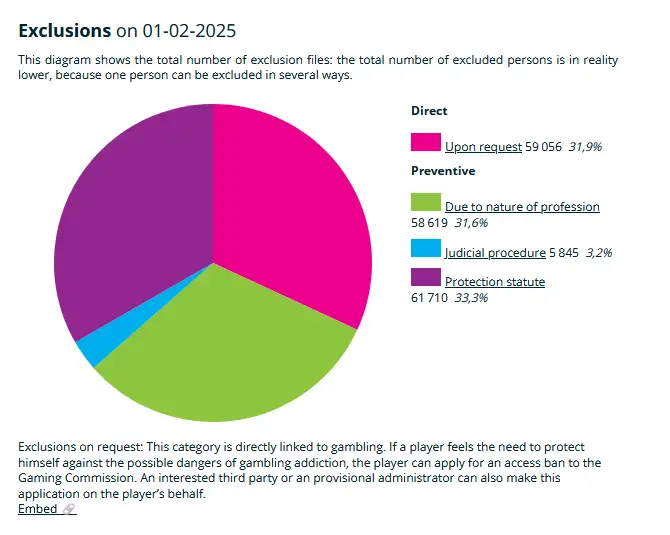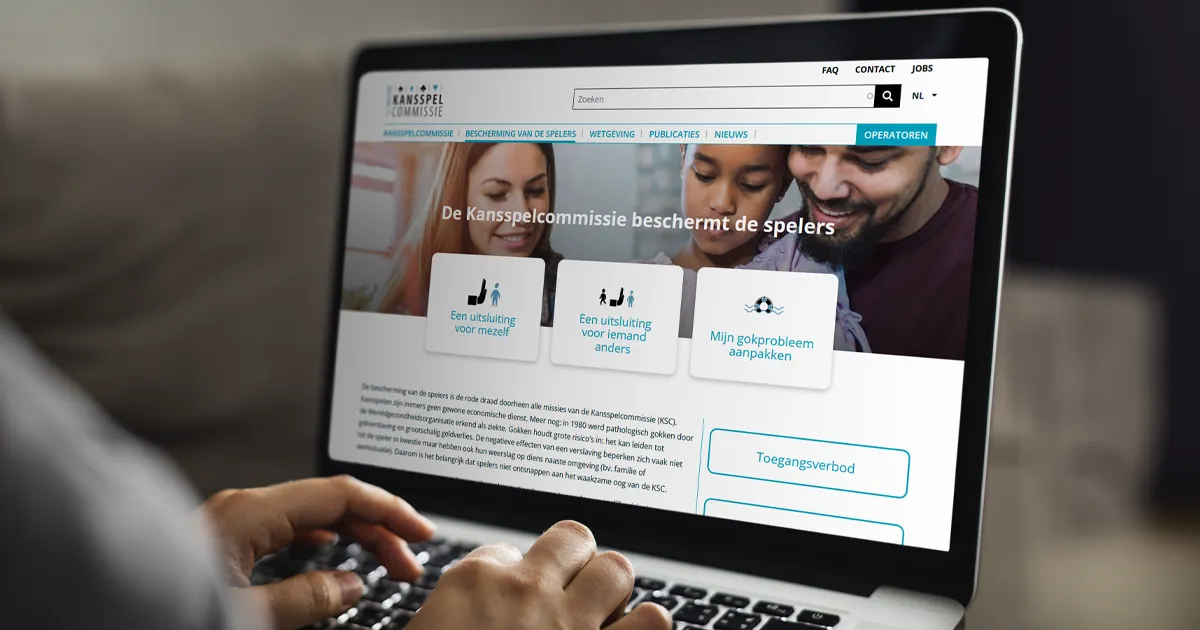Self-exclusion: record rise in gamblers in 2024
In 2024, Belgium saw a significant increase in the number of players choosing to self-exclude from gambling. According to data from the Ministry of Justice, 56,458 people voluntarily registered on the blacklist, marking an increase of 6,760 individuals, or 13.6% more than the previous year.
This upward trend is not new. Since the EPIS (Excluded Persons Information System) register was set up in 2004, the number of voluntary registrations has risen significantly, recording an increase of 120% since 2015. This reflects a growing awareness of the risks associated with gambling and a willingness among gamblers to take steps to protect themselves.
Integration of Itsme
The self-exclusion procedure was simplified at the end of 2021 with the integration of the ItsMe app, making it easier for players to sign up to the EPIS register. This ease of access has probably contributed to the increase in registrations. Indeed, on 1 January 2025, the number of direct self-exclusions was 58,249, rising to 59,056 on 1 February 2025, according to data available on the Gambling Commission’s website.

In addition to voluntary self-exclusions, there are other categories of exclusion. In 2024, 58,659 people were banned from gambling for professional reasons, including professions such as bailiffs, notaries and police officers. In addition, 5,476 individuals were excluded following a court decision, and 62,068 as a result of a collective debt settlement.
Worldwide trend
This increase in self-exclusion in Belgium is part of a worldwide trend.
In the Netherlands, the Cruks system, the equivalent of the Belgian EPIS system, saw a spectacular increase in 2024, with an average of 488 new registrants per week.
In the UK, the national online self-exclusion programme, GAMSTOP, reported a 31% increase in registrations among under-25s in the second half of 2024. This age group now accounts for almost 24% of new registrations, reflecting a growing awareness among young people of the risks associated with gambling.
Gambling advertising under fire
Intensive gambling advertising, particularly on mobile platforms, is often singled out as a factor contributing to the increase in risky behaviour.
Although advertising is banned in Belgium, illegal gambling operators invest massively in marketing, with budgets in excess of €600 million, making addiction prevention tools sometimes ineffective in the face of these aggressive strategies.
Faced with this situation, it is essential that the authorities continue to step up prevention and information measures. Simplifying self-exclusion procedures, such as the ItsMe application in Belgium, is a positive step. Unfortunately, it remains effective against illegal gambling platforms.


